Brother Moses
Interview By Liz Watts // Photos by Emma Watts // Tulsa, OK // February 2020
Brother Moses, an indie-rock four-piece comprised of James Lockhart, Moses Gomez, John-Lewis Anderson, and Corey Dill– delivered a truly room-shaking performance at The Vanguard in Tulsa on February 12. Although this was their first show at a Tulsa venue, the enthusiasm in the crowd reflected that of a band who has been here over and over again. Brother Moses kept the energy high and the crowd singing, dancing, and feeling as if each song that played was one of their own. The passion as a band that is shown on and off the stage makes it clear that Brother Moses is not only here to stay, but they’re set to bring a new era of sound and vision to music.
Check out what the guys have to say about the progress they’ve made since our last interview- like moving across the country, recording their new album, and making a career out of something so intrinsically rewarding.
Last time I interviewed you guys, you had just finished Magnolia back in September 2017. I was looking through my old notes and someone had said something about how you “…finally feel like we are turning into a band.” I’m thinking back to how long ago that was and you’ve probably lived two-band cycles since then! What has changed?
James: Honestly, we would probably say the same thing now. But it’s true both then and now. Then, we had figured out what kind of band we were and a lot of life happened after that. We moved across the country and all of our individual lives have changed. It’s weird because the band kept going but the band identity kinda stopped because our personal identities were changing so much. Once we took root again and had some time to really think about the band as an entity, it felt like it was gonna have to be different.
Do you think it is different?
James: It is…you kind of just feel it. It’s hard to explain.
John-Lewis: I think we are coming into our own as far as how we tour and handle the business side of it and all of that stuff.
James: All of the things that we used to let be loose and unstructured, we realized we needed to be structured.
Did you just learn that because you wanted to start taking things more seriously or was someone like “Yo, you guys are getting famous now so…you need a manager and a press agent!”
Moses: I think it was like, if we take ourselves more seriously then other people would take us more seriously. So that part of it has really just grown. We’ve had outside help on making things be more…legit. And I think we are way more like that than last time we talked.
James: I think one distinct difference since the last time we talked was we just finished Magnolia which was an album where we knew what we wanted to say, but we didn’t have a huge role in how it sounded.
Production-wise? Didn’t you use the same producer as Local Natives for the last album?
James: We did! But we didn’t for the new project. We took our time with this one. Magnolia we did in like 10 days.
I remember you guys had said that you just piled into a house, everyone was fighting over who got to work with Corey, and then you just watched Silicon Valley in your free time! So is this new album a project you’ve been working on over time since you finished up Magnolia? Or has it been another one of those projects where you kind of just pull everything together as quickly as possible?
Moses: We recorded it over this past year in Memphis with this guy named Calvin Lauber who did a little bit of The Band Camino and Julien Baker. He’s incredible and it was really freeing after working with Raymond [Richards] and being able to do whatever we wanted. He was down to try anything and we were really able to experiment with things and take our time with this album.
John-Lewis: A big part of it too was we actually had the time to try things. When we were making Magnolia, we had a day per song.
This sounds crazy to me because it is such an incredible and cohesive album!
James: Well Raymond is an incredible producer and has so much experience so he knew that we were coming in with a really ambitious thing to do which was 11 songs in 10 days. So, he knew we had to streamline it and crank it out. We gave ourselves more space with this one. We said, “Let’s go to Memphis and stay at the studio for four days and only work on two songs. And then a couple of months later, let’s come back and do the same thing with a couple more.” That was way better for us and let us go home and think about what we worked on and how to make it better.
Do you think there’s such a thing as thinking too much about a song- maybe even to the point where you think that it’s never going to be perfect?
John-Lewis: Definitely, but I think you can feel it when it hits the spot. We put higher standards on ourselves for how it sounds. We didn’t want to put anything out unless we were 100% about it. I feel like we got to that place. There’s nothing we wish we could work on more.
James: We kept it [the new album] really tight- it’s half an hour, it’s 8-tracks, and we made it concise and got it right so we didn’t have this sprawling anxious thing that maybe we couldn’t handle quite yet. Maybe next time. It took a toll to move and start over life-wise. A year will go by just like that.
During those times when your main focus is kind of getting your life up and going, does your music kind of just pause? Or are you still constantly coming up with ideas and wanting to practice but you can’t find time to make it happen?
Corey: I think it’s just on pause. It’s the intentional side of it- you have to set aside time to create and further this-or-that idea.
John-Lewis: During this time too, there were all of these ideas that each of us had individually that turned into the songs we have now.
What was the time line of this new record? Was it while you were all apart or did it start once you were back into the swing of things?
Moses: I think it officially started on this Colorado trip which was May of 2018.
James: We went to Colorado, we worked on four songs, and they were all ideas that kind of just threw little pieces into. It was like Magnolia but smaller. Then we went to the studio in Memphis with Calvin a month later and tried to finish those songs and we listened to them throughout the summer and we were like “We didn’t do it. We didn’t get it.” There’s one of them that we like and the other three we just didn’t feel like we got it. Then, kind of out of not knowing what to do, we put it out “Sam & Diane-“
So good! That one is…that one really is it.
James: Yes! That was the best thing we’ve done- so we put it out. Later we spent all of 2019 getting the other three right, adding more on, and that’s how we got the new record. So just piecing it all together over time. It became a musical diary that spans from the beginning of 2018 to the end of 2019 and there are feelings and moments captured in that period in each song.
What would you say are the main themes are of this new project compared to Magnolia?
John-Lewis: Moving to New York brought a lot of new things to write about. There is an energy and a collective struggle of everyone living there- but also excitement. All those things kind of fed into the music we wrote.
James: That is a piece of it, and there’s another that runs throughout and it’s a sense of urgency about life and realizing how fleeting time is and kind of wanting to prioritize and let go of things. Magnolia was just an outpouring of stuff you needed to get off your chest, and this one is kind of like a mission statement record that's like’s “What if we outlined a way to be and a way to live here?” Less reacting and more in-the-moment.
Would you say then that when you did Magnolia, it was only about a certain point in time?
James: Magnolia was like “This is everything I’ve every wanted to say,” and this one is…I put things and lyrics in this one that I want to be in a song before I died. So they are both kinds of similar in that way.
What will you be writing about next then?!
James: Right! I think I would like to zoom in more. We would like to make more music that has a more hyper-specific feeling because we have tried to capture the whole gamete every time we have gone into a song and that’s kind of why this one felt like a pop record to us because we wanted to do everything in every song. I think it came out pretty cool though.
Would you say that your most recent single is a good idea of what the entire album is going to be like?
John-Lewis: We want to give people a picture of what it’s gonna be, but there’s a lot of other factors that go into it too like “How does this make me feel? What do we want other people to feel?”
I know we briefly touched on this earlier, but when you are at the point where you have to start getting serious about marketing and things like that, how do you let it effect decisions such as what single you are going to release? How concerned are you about the business-side?
James: I mean to a degree you kind of have to be so that you make good decisions and don’t shoot yourself in the foot. We have a manager now, shout out to Elliot! He will be happy if you write that. But there are points where we get advice from him or some outside source and we are like “…ehhh, don’t care. This is what we wanna do.”
John-Lewis: It also kind of strengthens your opinions as well. If you meet it with resistance and then come away from that feeling stronger, you’re like “Okay, thats definitely the right decision.” So it’s good to have that extra voice in there.
Are you guys planning on making any big moves again?
James: Like to a new city? Oh no, we are done with that- we moved to New York and we will bet there for awhile. Just figured out this one!
Do you feel small being in such a huge city? I’ve only been there once and I got overwhelmed with how many things are going on and how much it takes to feel settled in or like you aren’t just always feeling lost. Or maybe the drive you must have to simply stay afloat, pay for rent, and take care of yourself is what will push you and help you turn you into the person you’re meant to be-
John-Lewis: I relate to what you said. There is that sense of “There are millions of people here- what am I even doing? Who will care?” But there’s so much energy that you feel when you’re there and you see everyone else who is in the same boat and trying to do what they are passionate about. I think you feed off of that and it propels you.
What was your main goal of moving to NY? Was to to be somewhere new? Get more access to industry professionals?
Moses: All of the above. We had all been in the same area for most of our lives and we didn’t think we were gonna go anywhere or do anything great in the area that we were at. We felt like we needed a change and that we could meet the right people to help us make this thing take off. We’ve met a lot of great people that have helped us along the way and I feel like as we stay in the area, we will keep making that happen.
Do you feel like your progression and popularity as a band is all up to fate and luck? Or, are you like “If I make these moves that are proven methods of success then it will happen?”
James: So much of it is totally out of your control. You can do everything to help yourself out and make sure that the thing you worked really hard on gets heard- you just want people to hear it. It’s a weird thing because it is so rewarding. There’s a reason beyond just logistics that we needed somebody to book shows for us because there’s a certain point at which you say a number that we could get paid to play music and it feels ridiculous to me. It's so much money to get paid to do something that is so fun! And in reality, it’s not that much money at all, my bar is just too low. But it is so rewarding on its own. It’s a constant battle between getting panicked knowing you have dedicated a chunk of your life to this and you want it to play out in a way that allows you to sustain a living- but you also want it to have a chance to be heard.
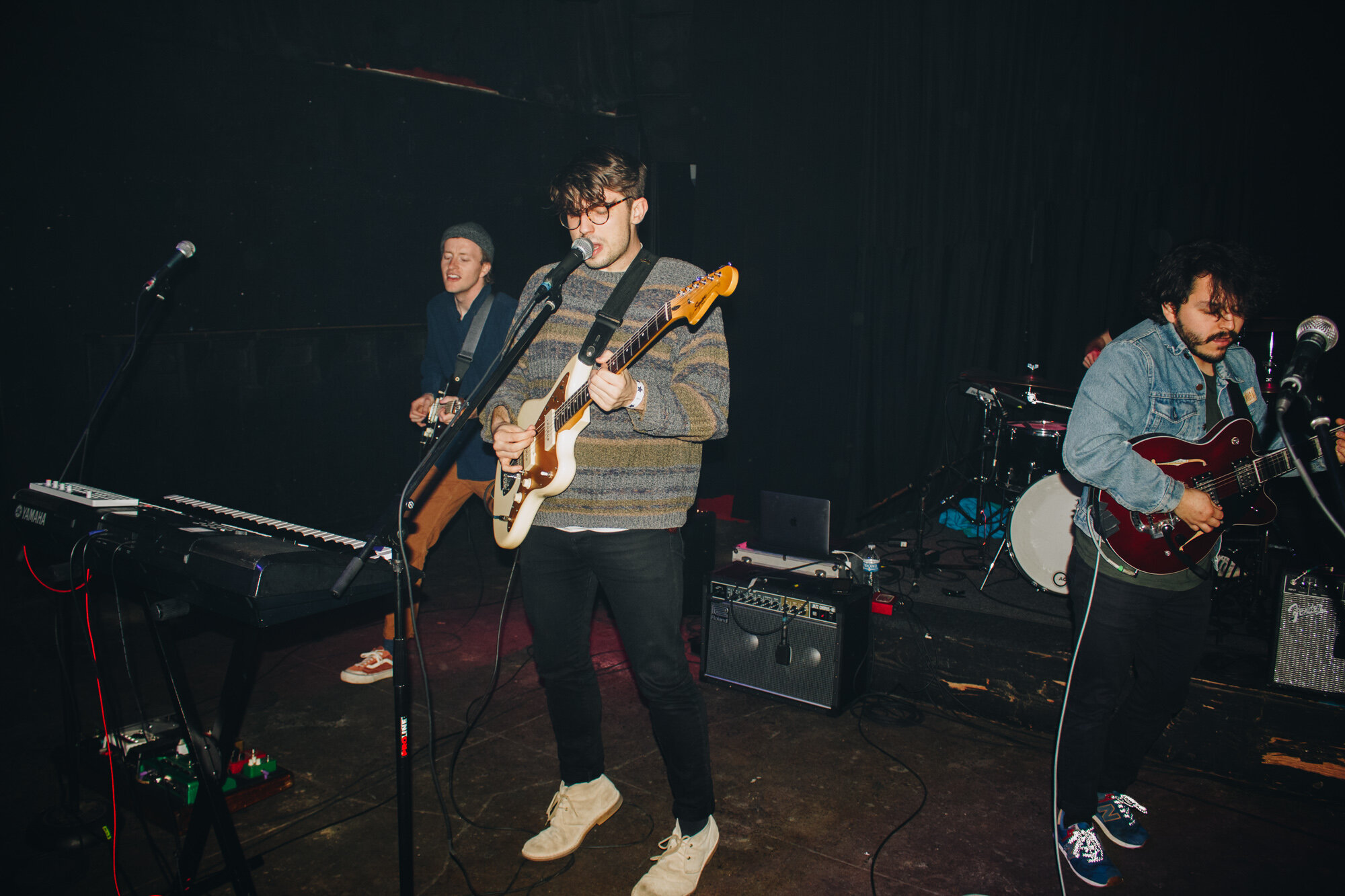
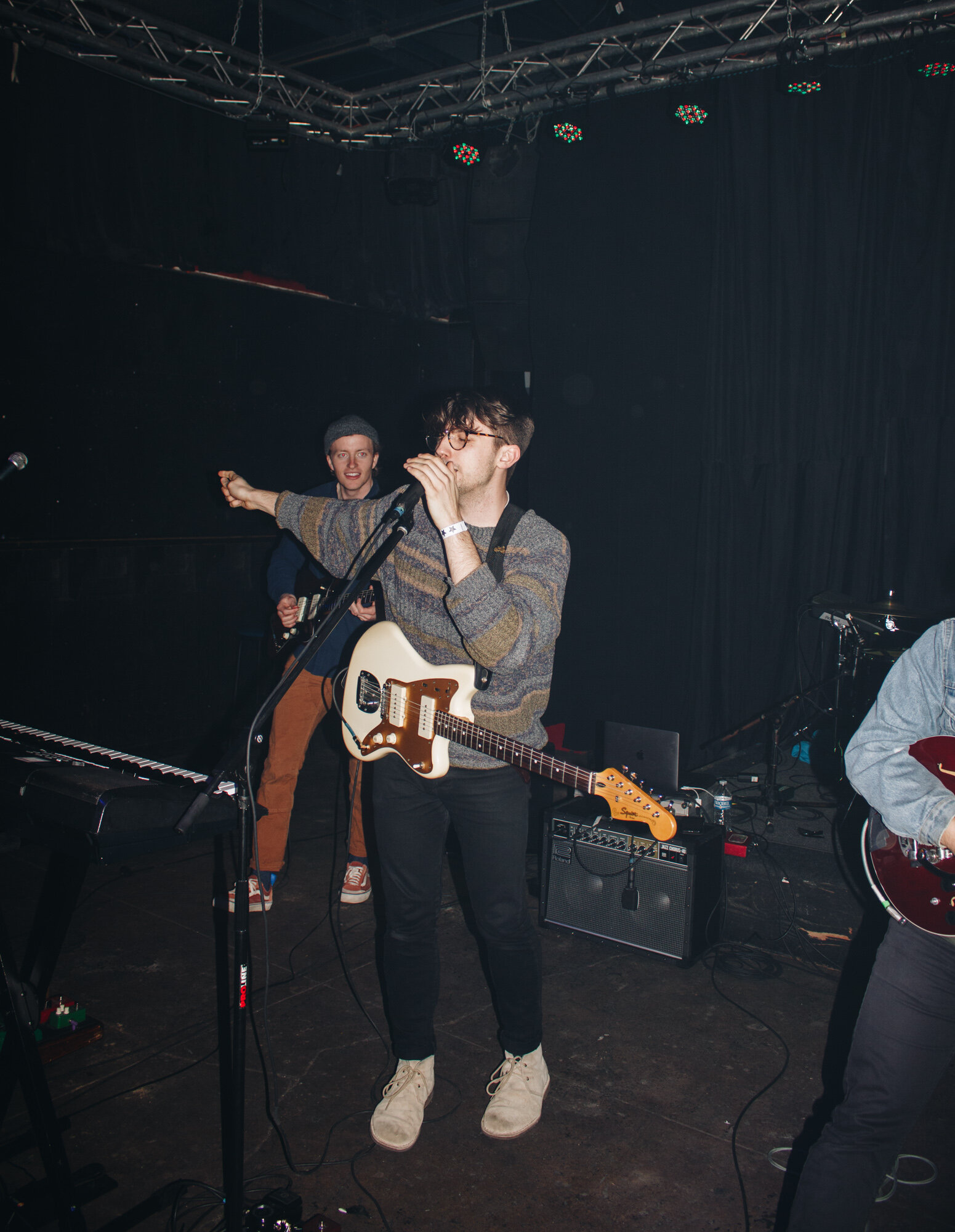
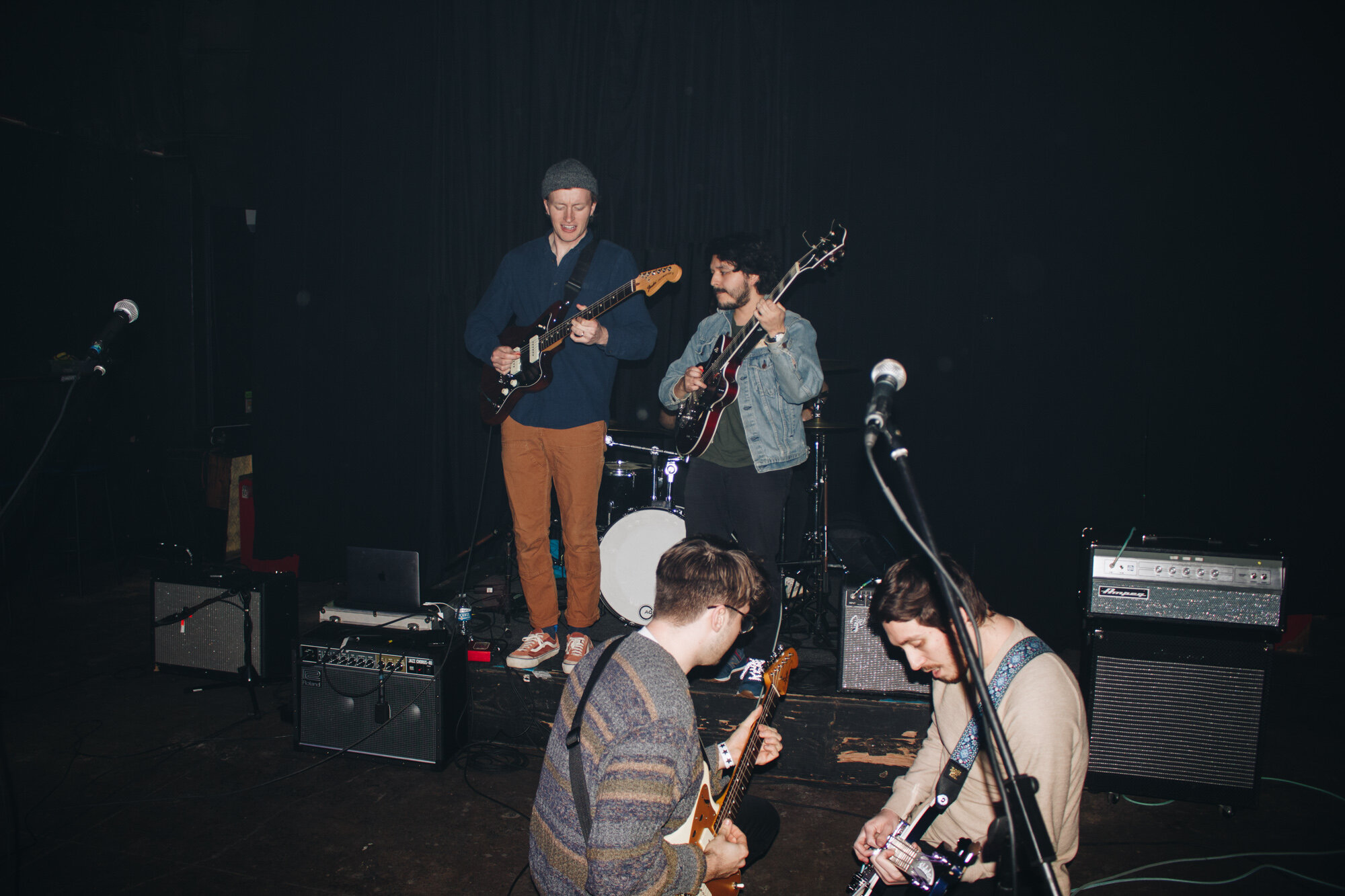
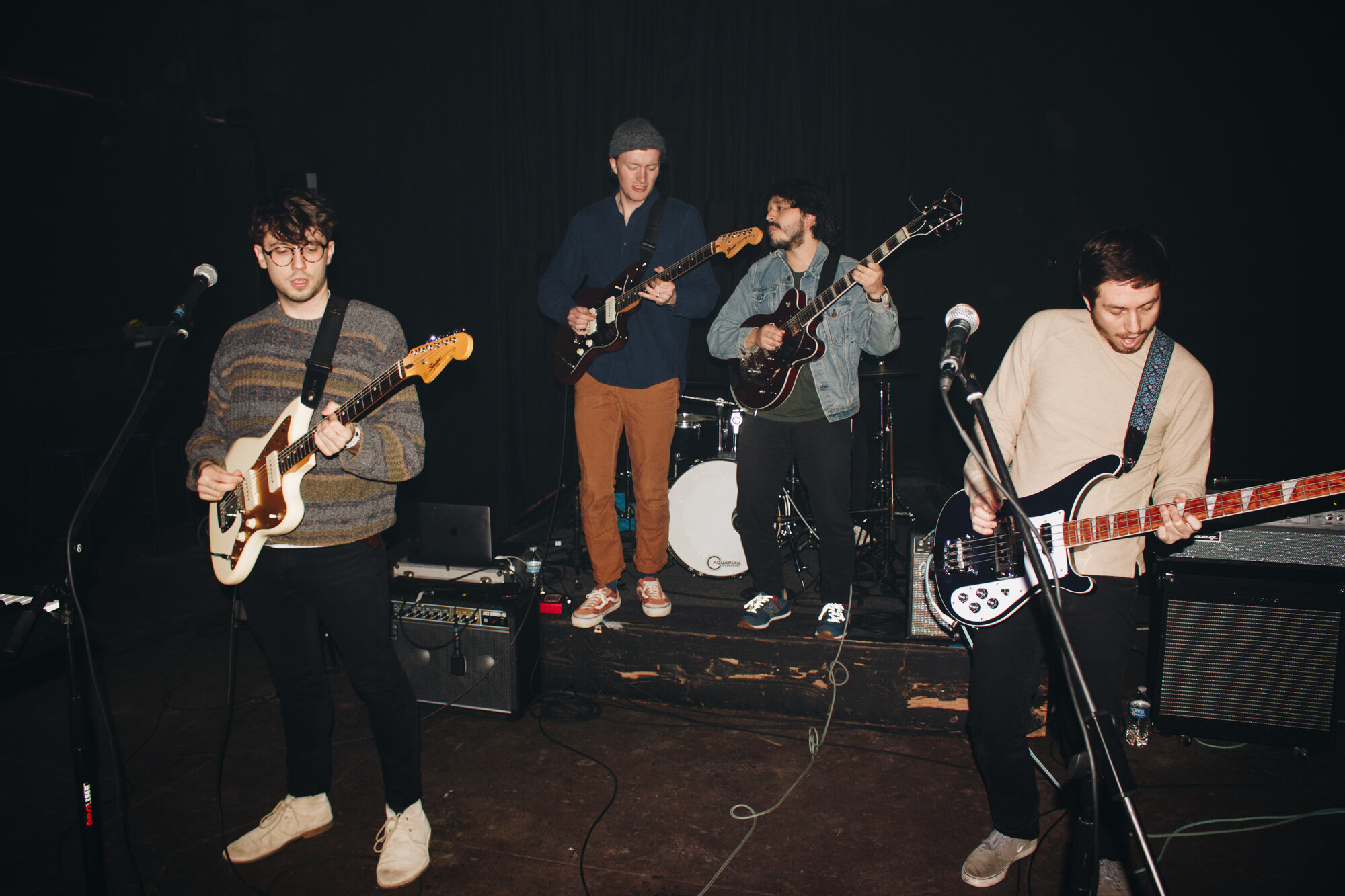



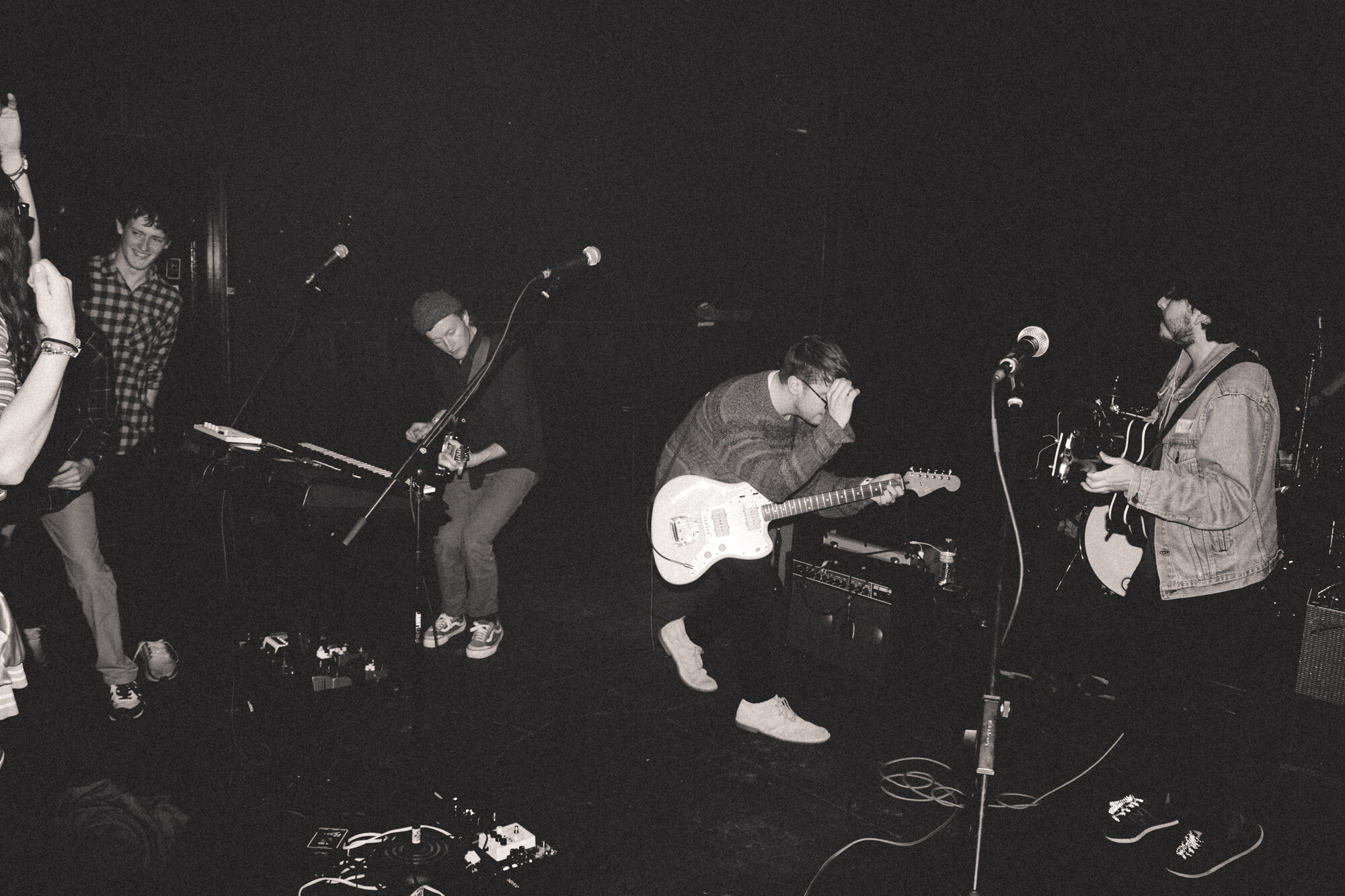
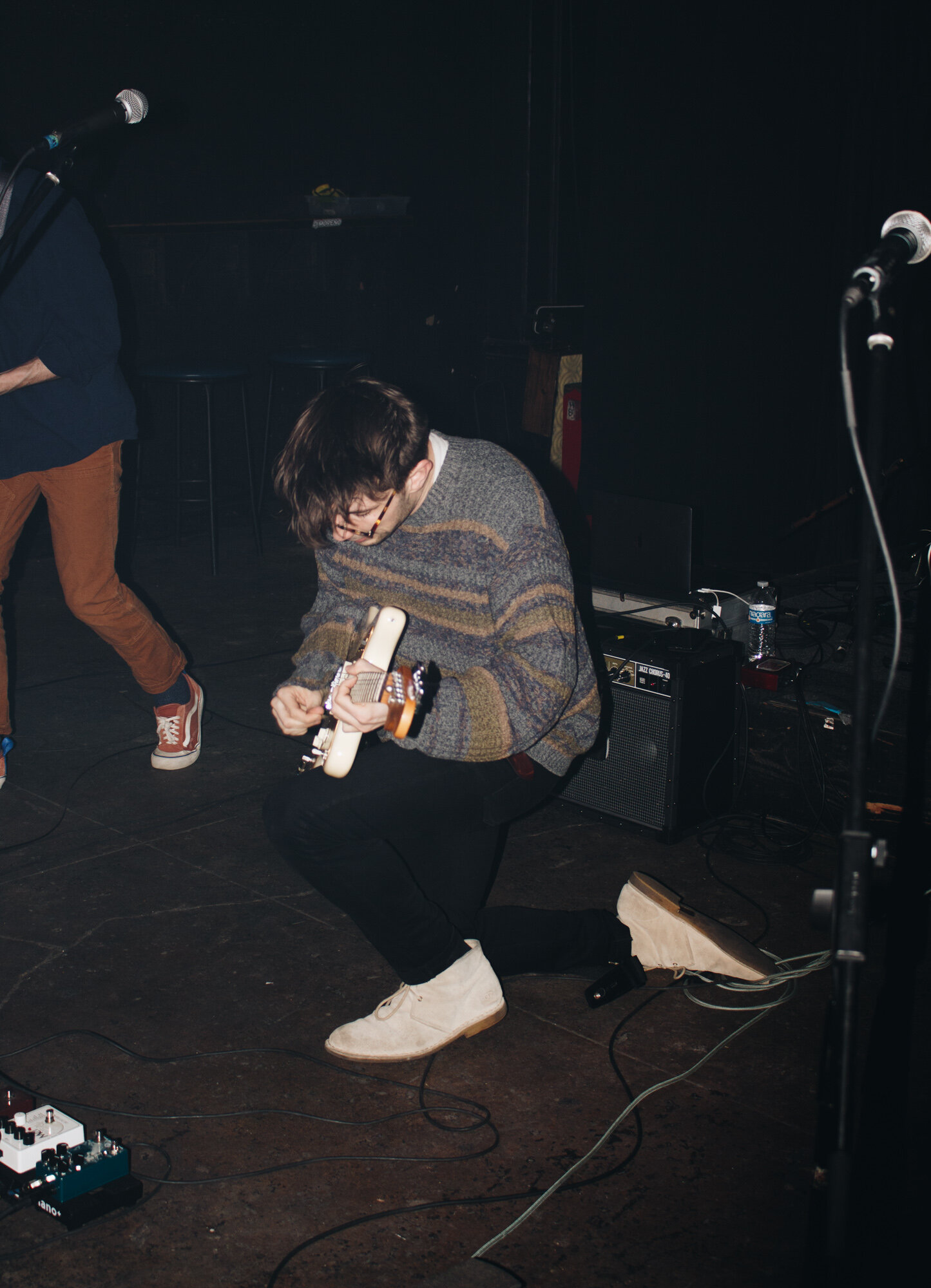
@brothermoses
Look out for their next single release on February 28th and their new record, Desperation Pop, on March 6, 2020

